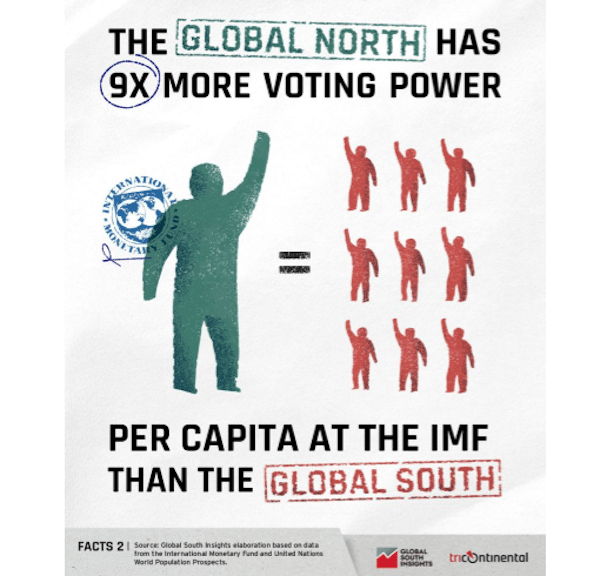Dear Friends,
Greetings from the desk of Tricontinental: Institute for Social Research.
Yes, the headline of this newsletter is accurate.
As far as the International Monetary Fund (IMF) is concerned, each person in the Global North is worth nine people in the Global South. We get that calculation from IMF data on voting power in the organisation relative to the population of the Global North and Global South states. Each country, based on its ‘relative economic position’, as the IMF suggests, is given voting rights to elect delegates to the IMF’s executive board, which makes all of the organisation’s important decisions. A brief glance at the board shows that the Global North is vastly overrepresented in this crucial multilateral institution for indebted countries.
The United States, for instance, has 16.49% of the votes on the IMF’s board despite representing only 4.22% of the world population. Since the IMF’s Articles of Agreement require 85% of the votes to make any changes, the U.S. has veto power over the decisions of the IMF. As a result, the IMF senior staff defers to any policy made by the U.S. government and, given the organisation’s location in Washington, DC, frequently consults with the U.S. Treasury Department on its policy framework and individual policy decisions.
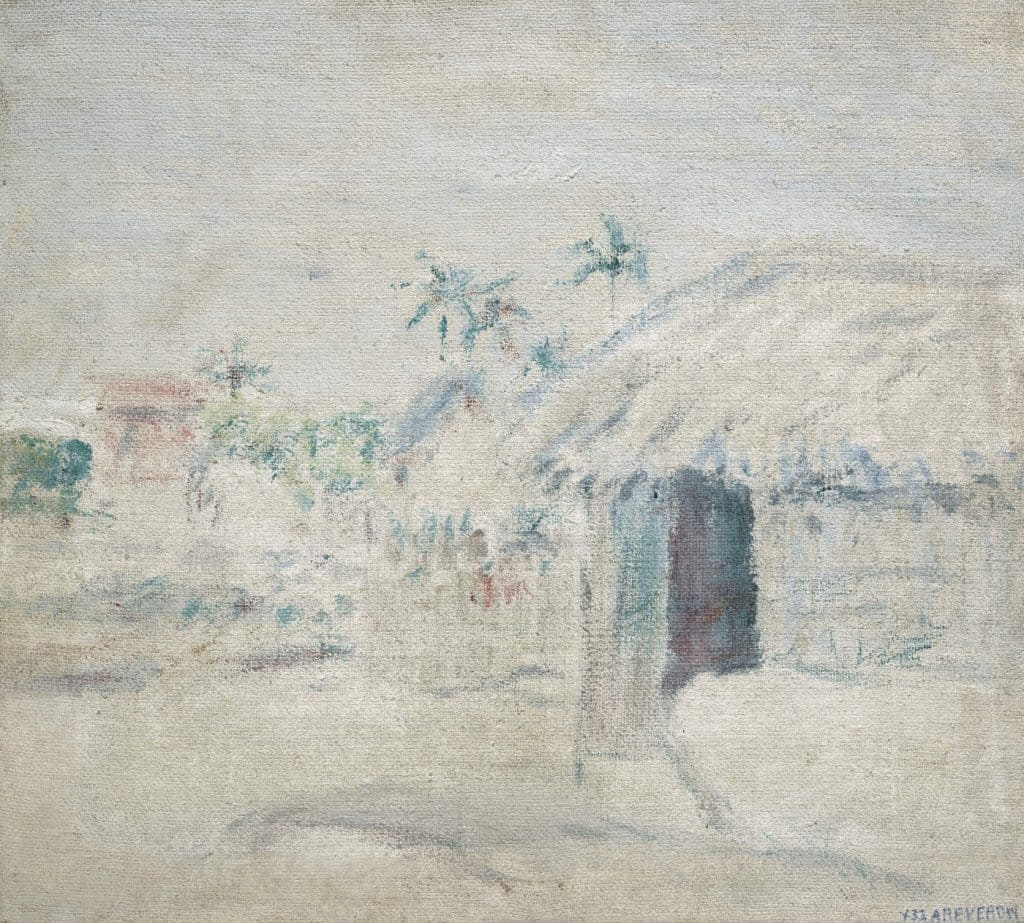
Armando Reverón (Venezuela), Ranchos (Ranches), 1933.
For example, in 2019, when the United States government decided to unilaterally cease recognising the government of Venezuela, it put pressure on the IMF to follow suit. Venezuela—one of the founding members of the IMF—had turned to the IMF for assistance on several occasions, paid off outstanding IMF loans in 2007, and then decided to no longer come to the IMF for short-term aid (indeed, the Venezuelan government instead committed itself to building the Bank of the South to provide bridge loans for indebted countries in case of balance-of-payments shortfalls). During the pandemic, however, Venezuela, like most countries, sought to draw on its $5 billion reserves in special drawing rights (the ‘currency’ of the IMF) that it had access to as part of the fund’s global liquidity-boosting initiative. But the IMF—under pressure from the U.S.—decided not to transfer the money. This followed an earlier rejection of a request by Venezuela to access $400 million from its special drawing rights.
Though the U.S. said that the real president of Venezuela was Juan Guaidó, the IMF continued to acknowledge on its website that Venezuela’s representative to the IMF was Simón Alejandro Zerpa Delgado, then the minister of finance in the government of President Nicolás Maduro. IMF spokesperson Raphael Anspach would not answer an email we sent in March 2020 about the denial of the funds, though he did publish a formal statement that the IMF’s ‘engagement with member countries is predicated on official government recognition by the international community’. Since there is ‘no clarity’ on this recognition, Anspach wrote, the IMF would not allow Venezuela to access its own special drawing rights quota during the pandemic. Then, abruptly, the IMF removed Zerpa’s name from its website. This was entirely due to U.S. pressure.
In 2023, at the New Development Bank (BRICS Bank) in Shanghai, China, Brazil’s President Luiz Inácio Lula da Silva pointed to the ‘asphyxiation’ of IMF policy when it came to the poorer nations. Speaking of the case of Argentina, Lula said, ‘No government can work with a knife to its throat because it is in debt. Banks must be patient and, if necessary, renew agreements. When the IMF or any other bank lends to a Third World country, people feel they have the right to give orders and manage the country’s finances—as if the countries had become hostages of those who lend them money’.
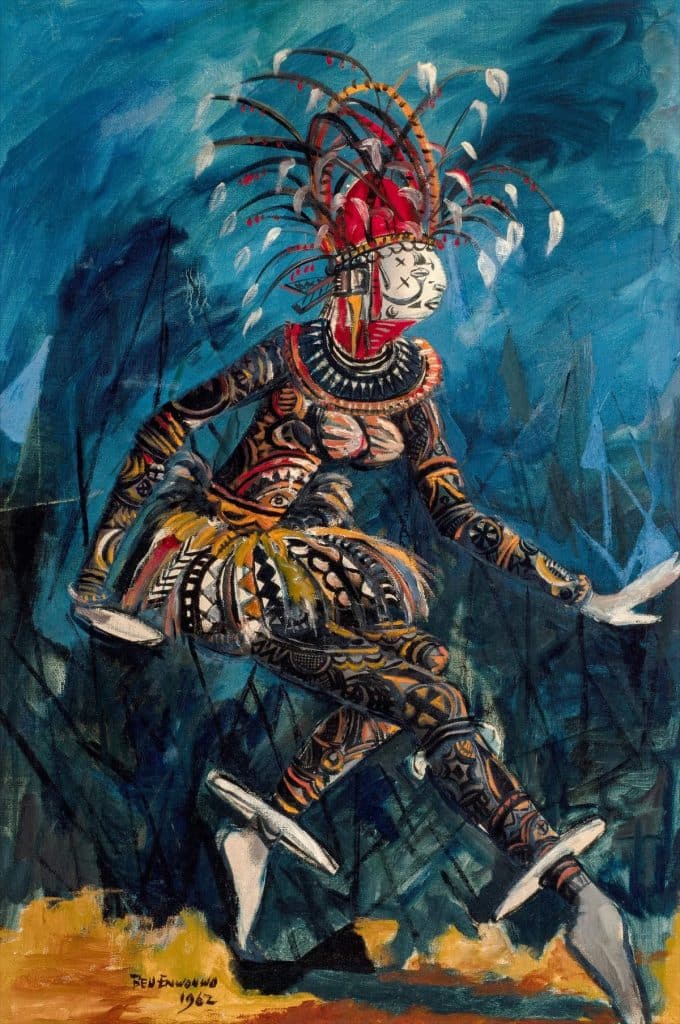
Ben Enwonwu (Nigeria), The Dancer, 1962.
All the talk of democracy dissolves when it comes to the actual basis of power in the world: control over capital. Last year, Oxfam showed that the ‘world’s top 1% own more wealth than 95% of humanity’ and that ‘over a third of the world’s biggest 50 corporations—worth $13.3 trillion—[is] now run by a billionaire or has a billionaire as a principal shareholder’. Over a dozen of these billionaires are now in the cabinet of U.S. President Donald Trump; they no longer represent the 1%, but in fact the 0.0001% or ten-thousandth percent. At the current rate, by the end of this decade, the world will see the emergence of five trillionaires. They are the ones who dominate governments and who, therefore, have an extraordinary impact on multilateral organisations.
In 1963, Nigeria’s Foreign Minister Jaja Anucha Ndubuisi Wachuku expressed his frustration with the United Nations and other multilateral organisations. African states, he said, had ‘no right to express their views on any particular matter in important organs of the United Nations’. No African country—and no Latin American country—had a permanent seat at the United Nations Security Council. At the IMF and the World Bank, no African country could drive an agenda. At the United Nations, Wachuku asked, ‘Are we only going to continue to be veranda boys?’. Though the IMF included one more chair for an African representative in 2024, this is far from adequate for the continent, which has more IMF members (54 out of 190 countries) and more active IMF lending programmes than any other continent (46.8% from 2000 to 2023) but the second-lowest voting shares (6.5%) after Oceania. North America, with two members, has 943,085 votes, while Africa, with 54 members, has 326,033 votes.
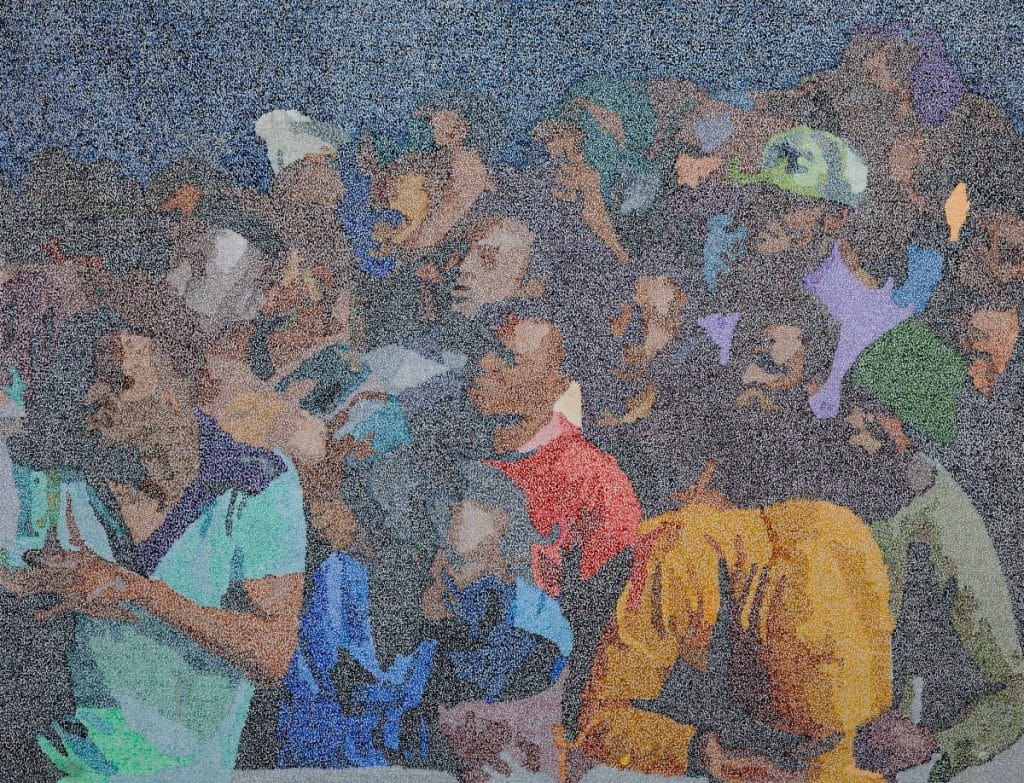
Alioune Diagne (Senegal), Rescapé (Survivor), 2023.
In the aftermath of the 2007 financial crisis and at the start of the Third Great Depression, the IMF decided to start a process for reform. The incentive for this reform was that when a country went to the IMF for a bridge loan—which should have been seen as non-prejudicial—it ended up hurting that country in capital markets because seeking a loan held the stigma of poor performance. Money was then lent to the country at higher rates, which only deepened the crisis that had set in motion the request for a bridge loan in the first place.
Beyond this issue lay a deeper one: all of the IMF’s managing directors have been European, which means that the Global South has had no presence in the upper ranks of the IMF’s leadership. The entire voting structure at the IMF degraded with the quota votes (based on the size of the economy and the financial contribution into the IMF) increasing in scale while the more democratic ‘basic votes’ (one country, one vote) collapsed in impact. These different votes are measured in two forms: calculated quota shares (CQS), which are set by a formula, and actual quota shares (AQS), which are set through political negotiations. In a 2024 calculation, for instance, China has an AQS of 6.39%, while its CQS is 13.72%. To increase China’s AQS to match its CQS would require reducing that of other countries, such as the United States. The U.S. has an AQS of 17.40%, which would have to be reduced to 14.94% to accommodate the increase to China. That decrease of the U.S. share would, therefore, erode its veto power. For that reason, the U.S. scuttled the IMF reform agenda in 2014. In 2023, the IMF reform agenda failed again.
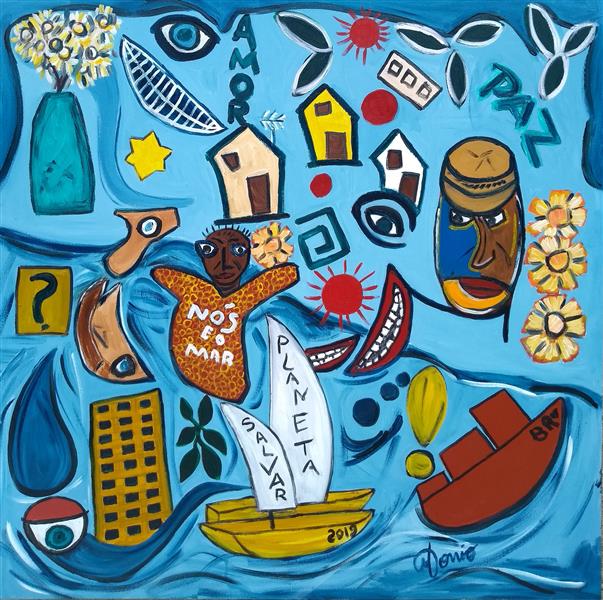
Antonio Souza (Brazil), Cadê minha praia? O mar levou (Where Is My Beach? The Sea Took It Away), 2019. The text in the painting reads, from top left to bottom right, ‘love’, ‘peace’, ‘us and the sea’, ‘save’, ‘planet’.
Paulo Nogueira Batista Jr. was the executive director for Brazil and several other countries at the IMF from 2007 to 2015, vice president of the New Development Bank from 2015 to 2017, and is a contributor to the international edition of the leading Chinese journal Wenhua Zongheng. In an important paper called A Way out for IMF Reform (June 2024), Batista offers a seven-point reform agenda for the IMF:
- Make conditionalities on loans less stringent.
- Cut surcharges on longer-term loans.
- Bolster concessionary lending to eradicate poverty.
- Increase the IMF’s overall resources.
- Increase the power of basic votes to give the poorer nations more representation.
- Give the African continent a third chair on the board.
- Create a fifth deputy managing director position, to be filled by a poorer nation.
If the Global North ignores such basic, sensible reforms, Batista argues, ‘Developed countries will then be the sole owners of an empty institution’. The Global South, he predicts, will exit the IMF and create new institutions under the aegis of new platforms such as BRICS. In fact, such institutions are already being built, such as the BRICS Contingent Reserve Arrangement (CRA), which was set up in 2014 after the failed attempt to reform the IMF. But the CRA ‘has remained largely frozen’, writes Batista.
Until a thaw, the IMF is the only institution that provides the kind of financing necessary for poorer nations. That is why even progressive governments, such as the one in Sri Lanka, where interest payments make up 41% of total expenditure in 2025, are forced to go to Washington. Hat in hand, they flash a smile at the White House on their way to the IMF headquarters.
Warmly,
Vijay

